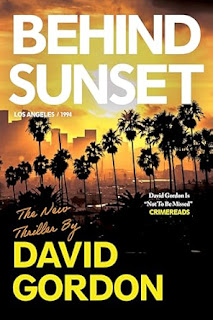New from Flatiron Books: The Island of Last Things: A Novel by Emma Sloley.

About the book, from the publisher:
A SOARING, PROPULSIVE, AND UNFORGETTABLE novel about two zookeepers at the last zoo in the worldVisit Emma Sloley's website.
“Sometimes a new author will sidle up and whisper in your ear, and sometimes she’ll grab you by the neck. Emma Sloley is in the latter camp.” ―REBECCA MAKKAI
Camille has always preferred animals to people. The wild has nearly disappeared, but as a zookeeper at the last zoo in the world, on Alcatraz Island, she spends her days caring for playful chimpanzees, gentle tree frogs, and a restless jaguar. Outside, resistance groups and brutal cartels fight to shape the world’s future, but Camille is safe within her routines. That is, until a new zookeeper, Sailor, arrives from Paris.
From their first meeting, Camille is drawn to Sailor, who seems to see something in Camille that no one has before. They bond over their shared passions and dream up ways to improve their lives. When Sailor whispers the story of an idyllic, secret sanctuary where wild animals roam free, Camille begins to imagine a new kind of life with Sailor by her side.
Sailor knows all too well the dangers beyond Alcatraz, but she increasingly chafes at the zoo’s rigid rules. She hatches a reckless plan to smuggle one of the most prized animals off the island to freedom, and invites Camille to join her. The consequences if they fail would be catastrophic, and Sailor’s contacts at the sanctuary go dark just as the threats from the cartels grow more extreme. Camille must decide if she’s ready to risk everything for the promise of a better world.
Propulsive and fiercely hopeful, with a heart-stopping final twist, The Island of Last Things is an elegy for a disappearing world and a gorgeous vision for the future.
Writers Read: Emma Sloley (December 2019).
--Marshal Zeringue











































